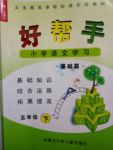题目内容
—Can you tell me how many people will go to the exhibition?
—Of course.About 3,000 students from 15 schools ______, and I think two-thirds will come.
A. invite B. will invite
C. have been invited D. had been invited
练习册系列答案
 小学学习好帮手系列答案
小学学习好帮手系列答案 小学同步三练核心密卷系列答案
小学同步三练核心密卷系列答案
相关题目

